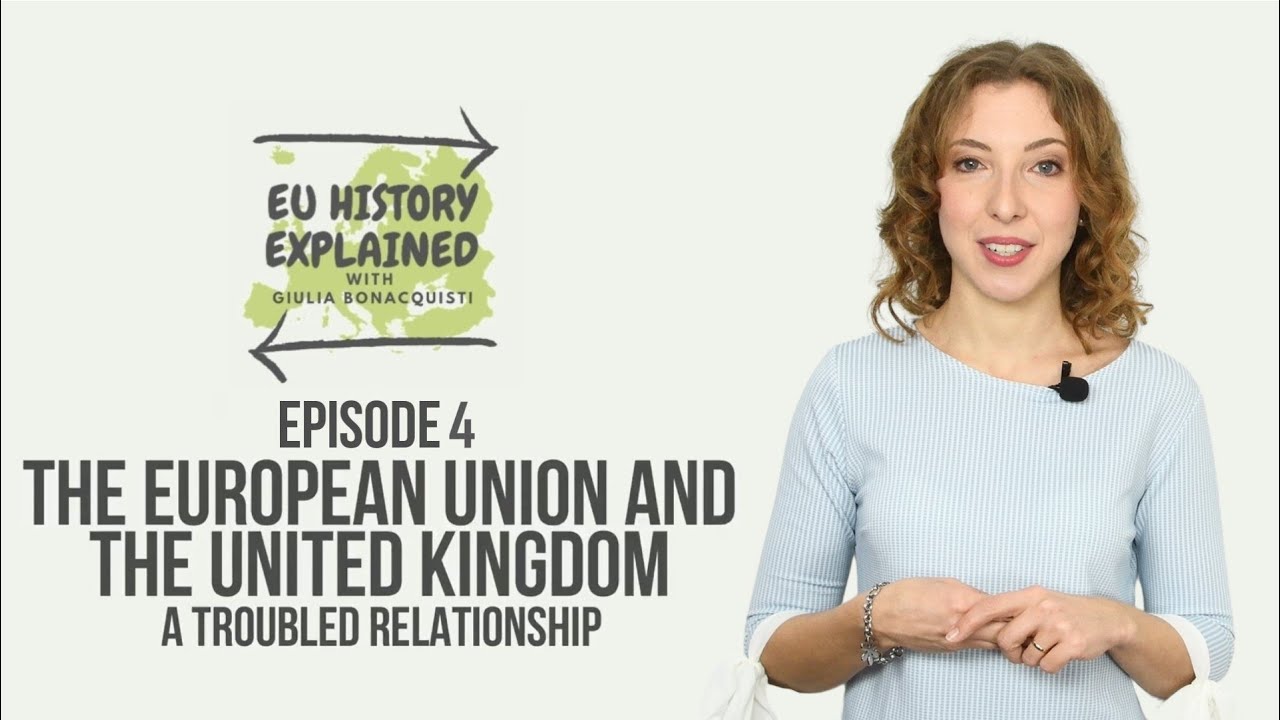12. La Constitución de la UE
Summary
TLDRThe transcript explores the unique legal and constitutional framework of the European Union (EU), emphasizing its evolution from economic to political integration. It highlights the EU's autonomy, supremacy of EU law over national legislation, and the establishment of EU citizenship, which provides individuals with rights transcending national boundaries. The importance of fundamental rights, as articulated in Article 2 of the Treaty on the European Union, is underscored, along with mechanisms for sanctioning member states that violate these principles. Overall, the EU represents a complex legal entity that embodies shared values and a commitment to upholding democracy and the rule of law among its member states.
Takeaways
- 📜 The EU's legal framework is primarily based on international treaties rather than a formal constitution.
- 🔄 The legal order of the EU has evolved significantly, resembling characteristics of a constitutional system over time.
- ⚖️ The European Court of Justice (ECJ) emphasizes the supremacy of EU law, which takes precedence over national laws.
- 🌍 EU citizenship was established by the Maastricht Treaty, granting individuals specific rights independent of their nationality.
- 💼 Article 2 of the Treaty on European Union outlines fundamental values, including human dignity, democracy, and the rule of law.
- 🛡️ Fundamental rights, including those of minorities, are essential to the EU's identity and are legally binding for member states.
- 🔍 Mechanisms such as Article 7 exist to address violations of fundamental values among member states.
- ⚠️ Preventive measures under Article 7 can be enacted when a member state poses a risk of serious breaches of EU values.
- 🚫 Sanctions for violations can include the suspension of voting rights or EU funding to ensure compliance.
- ✊ The EU aims to create a space of peace, democracy, and respect for human rights, extending beyond mere economic cooperation.
Q & A
What is the main issue with classifying the European Union (EU) as having a constitution?
-The main issue lies in the classical constitutional doctrine, which suggests that the EU lacks a legislative corpus legitimized by a social pact, primarily because its legal structure is based on international treaties rather than a single constitutional document.
How has the legal order of the EU evolved over time?
-The legal order of the EU has evolved significantly from an economic union to a political one, now encompassing a rich legal framework comparable to that of constitutional states, indicating a process of constitutionalization.
What does the term 'constitutionalization' refer to in the context of the EU?
-Constitutionalization in the EU context refers to the gradual development of a constitutional framework that includes elements such as fundamental rights, institutional structures, and the rule of law, as recognized by the European Court of Justice.
What did the European Court of Justice state about fundamental rights?
-The European Court of Justice emphasized that respect for fundamental rights is a community constitutional principle, highlighting its importance in the EU's legal order.
What constitutes a constitution according to the transcript?
-A constitution is defined as an autonomous form of political organization in society, based on common values and establishing a direct link between the organization and individuals.
What are the key characteristics of the EU's legal order?
-The EU's legal order is characterized by a set of political organization rules, defined treaties governing its legal and administrative activities, and the recognition of legal supremacy by the European Court of Justice.
How did the Maastricht Treaty influence EU citizenship?
-The Maastricht Treaty established the concept of European citizenship, which aims to provide fundamental status to nationals of member states, enabling them to enjoy rights regardless of their nationality.
What values are foundational to the EU as mentioned in the transcript?
-The foundational values of the EU include respect for human dignity, freedom, democracy, equality, the rule of law, and respect for human rights, including those of minorities, as outlined in Article 2 of the Treaty on European Union.
What consequences arise from the promotion of EU values?
-The promotion of EU values leads to crucial consequences, such as conditions for accession to the EU, sanction procedures for states that violate these values, and mechanisms for upholding the rule of law within member states.
What is the significance of Article 7 of the Treaty on European Union?
-Article 7 allows the EU to take measures against member states that demonstrate a serious and systemic risk of violating EU values, which can include suspension of certain rights within the EU framework.
Outlines

此内容仅限付费用户访问。 请升级后访问。
立即升级Mindmap

此内容仅限付费用户访问。 请升级后访问。
立即升级Keywords

此内容仅限付费用户访问。 请升级后访问。
立即升级Highlights

此内容仅限付费用户访问。 请升级后访问。
立即升级Transcripts

此内容仅限付费用户访问。 请升级后访问。
立即升级浏览更多相关视频

From the EEC to today's European Union | #EUHistoryExplained Episode 10

Why ASEAN Will Surpass the European Union

The European Union & the United Kingdom: A Troubled Relationship | EU History Explained Episode 4

The EUROPEAN UNION, Explained [AP Euro Review—Unit 9 Topic 10]

União Europeia - Brasil Escola

União Europeia
5.0 / 5 (0 votes)
